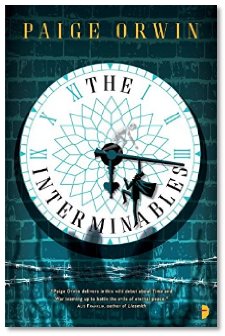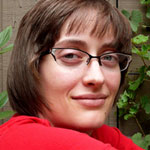 First off: a little disclaimer.
First off: a little disclaimer.
Post-Traumatic Stress Disorder (PTSD) is a mental condition that people who live through a traumatic event can develop. Symptoms include “persistent remembering” (vivid memories, recurring dreams, distress when exposed to circumstances similar to or associated with the original event, or flashbacks), preferred avoidance of circumstances similar to or associated with the original event, and some combination of difficulty sleeping, difficulty concentrating, hyper-vigilance (being “on edge” all the time), prone to startling, irritability or outbursts of anger, or inability to recall (partially or completely) some part of the traumatic event. Emotional detachment and numbing of feeling are common.
In popular culture, PTSD is usually associated with military veterans: sad, distant men who’ve come back from unspeakable horror overseas, who dream of gunfire, jump at loud noises, stare at nothing, and suddenly “snap” and shoot up public places for no apparent reason. These characters are usually an object of both pity and fear. Their mental problems are all-encompassing and incurable.
This picture is not accurate.
When dealing with PTSD, in life or fiction, it’s important to remember these things:
a) Not all military veterans have PTSD
b) Not all military veterans are combat veterans
c) You don’t have to have been in a war to have PTSD (it can happen to anyone who experiences something traumatic, be it a car accident, an earthquake, or sexual assault). In fact, interpersonal abuse causes it much more often than disasters or war does.
d) If you know one person with PTSD, you know one person with PTSD, who is like no other person with PTSD. It affects everyone differently, because everyone is different.
With that said:
In The Interminables, one of the main characters is Edmund Templeton (aka The Hour Thief). He’s a librarian, wizard, and military veteran who was aboard a ship sunk by kamikazes in WWII. Because of his magic – which means he can’t die so long as he “has time” – he effectively drowned for several hours, while trying to find his way out from below-decks. It’s been over seventy years since this happened, but he’s still affected by it: he doesn’t like sudden jolts or tight spaces, he’s really sensitive to anything that might make it hard to breathe, and in bad moments he can taste fuel oil in the back of his throat. He sometimes dissociates from what he’s doing (heck, he has an entire superhero identity for that). He still feels guilty for being the guy who made it out while the others didn’t. He does the best he can to not dwell on it, to not think about it, but sometimes that’s hard – especially because he’s seen a lot of other crap, being a wizard, and repeated exposure to disturbing things does not help recovery. He has PTSD, even if it wasn’t called that back in the day, and it’s a thing he has to live with.
Now, mental illness is a tough topic. While I was working on this book, I wanted to get things right. I did a lot of research. I didn’t want to portray someone who supposedly suffers this very real thing but doesn’t actually seem to struggle with it: that would suggest that people who do struggle are weak, and doing it wrong, and don’t have enough willpower to hide it. That would be unfair. But I also didn’t want to make the illness his only character trait, like it’s totally consumed everything else. That would also be unfair.
So, the end product is a character who’s a respected wizard, a world-class linguist and grammar pedant, who deals with celebrity attention and a grumpy boss on a daily basis, who makes a living off punching mercenaries and standing up to awful monsters from Beyond the World… and who counts it a victory when he remembers to feed his cat. When he doesn’t have one more drink. When he leaves the house to go do what he’s supposed to do when he’d really rather just lie on the couch and feel like garbage.
It’s the small things.
I present to you a valid question: ‘If the stereotype of someone with PTSD is a male military combat veteran, why didn’t you buck that and write about something else?’
The short answer is that by the time I got my hands on the character, he was already a vet. The long answer is that the other main character, Istvan, is intimately tied to WWI – when formal diagnosis of “shell-shock” was becoming a thing – and that the sympathetic resonance between a medical professional from one war and a soldier from another war was too good to pass up.
So, let’s talk about Istvan for a second. He’s Edmund’s best friend and closest confidant. He’s also a kind of embodiment of the First World War – a spirit who is simultaneously the ghost of a person and an event – and has been a combat surgeon for over a hundred years. In other words, he’s in a unique position as far as PTSD is concerned, and he plays an important role: he’s someone that Edmund can talk to. He’s Edmund’s support (along with Edmund’s cat, who helps).
The thing about Istvan is that he doesn’t talk down to Edmund, or act like he’s “less,” or “weak,” or “broken” for dealing with what he does. Istvan listens. He’s there when Edmund needs him, and doesn’t lecture the guy on how he should be feeling (at least, not about this). He treats him like a person first. And yeah, he gets frustrated when Edmund goes drinking AGAIN or hasn’t gotten things done or whatever – he isn’t a saint – but focusing on the person and not the illness is the important thing. I wanted to demonstrate what that looks like, how you can care for someone who’s having trouble without trying to do everything for them or make them feel bad about having trouble. Istvan doesn’t do everything right, but he tries, and that’s all a friend can do.
That’s a little about PTSD in my book.
In the end, I just wanted to write something that seemed true. I wanted to raise awareness of mental illness without taking advantage of anyone or misrepresenting people. I wanted to have a character who has this condition, and struggles with this condition, but is still a rounded character who can have friends and make stupid puns and be a hero. If I’ve done something wrong, please, let me know – I’m always looking to get better. That’s how you learn, after all: you listen.
The Interminables by Paige Orwin
Mass Market Paperback: 416 pages
Publisher: Angry Robot (July 5, 2016)
Language: English
ISBN-10: 085766591X
ISBN-13: 978-0857665911




Leave a Reply